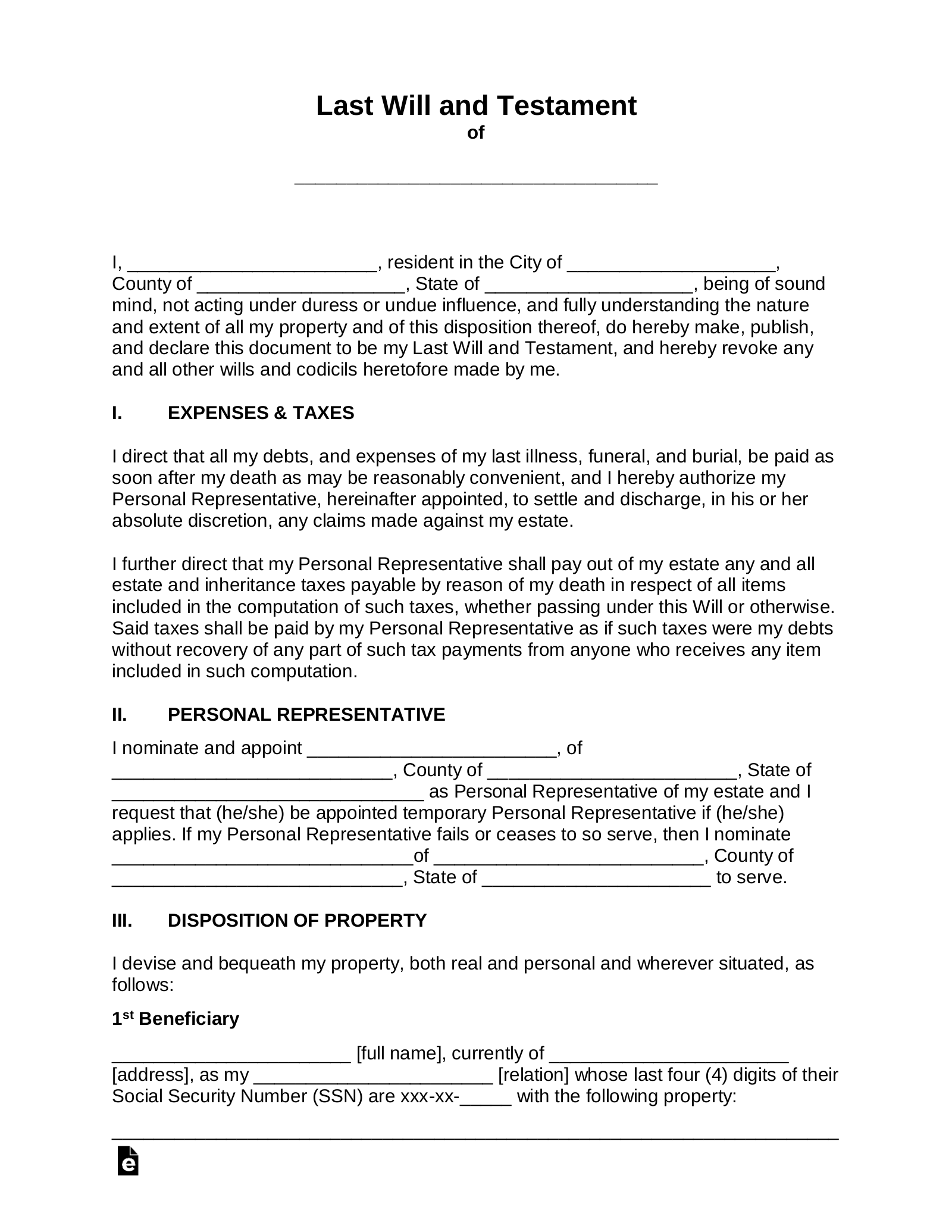A simple will is a legal document that outlines your wishes for the distribution of your property after your death. It’s a crucial step in estate planning, ensuring that your assets go where you want them.
What to Include in a Simple Will
A basic will should include the following:

Image Source: eforms.com
Your Name: Clearly state your full name at the beginning.
Example of a Simple Will
Here’s a simplified example of a will:
> I, [Your Name], of [Your City, State], do hereby make, publish, and declare this to be my Last Will and Testament.
>
> I revoke all wills or codicils previously made by me.
>
> I appoint [Name of Executor] as the executor of this will.
>
> I give, devise, and bequeath all of my property, both real and personal, to [Name of Beneficiary].
>
> In the event that [Name of Beneficiary] predeceases me, I give, devise, and bequeath all of my property to [Name of Alternate Beneficiary].
>
> I hereby nominate [Name of Guardian] as the guardian of my minor children.
>
> I direct that my funeral and burial be conducted in accordance with my wishes as expressed to my executor.
>
> IN WITNESS WHEREOF, I have signed this instrument on [Date] in the presence of the undersigned witnesses, who, at my request and in my presence, have signed as witnesses.
>
> [Your Signature]
>
> [Witness 1 Signature]
>
> [Witness 2 Signature]
Note: This is a very basic example, and it’s essential to consult with an attorney to create a will that accurately reflects your wishes and complies with local laws.
Conclusion
A simple will is a valuable tool for ensuring that your assets are distributed according to your wishes. By taking the time to create a will, you can provide peace of mind for yourself and your loved ones.
FAQs
1. Do I need a lawyer to create a will? While it’s possible to create a simple will yourself, consulting with an attorney can help ensure that your will is legally valid and meets your specific needs.
2. Can I change my will after it’s been signed? Yes, you can modify your will by creating a codicil or by drafting a new will.
3. What happens if I die without a will? If you die intestate (without a will), your property will be distributed according to the laws of your state.
4. How often should I review my will? It’s a good idea to review your will every few years, especially if there are significant changes in your life, such as the birth of a child, a marriage, or a divorce.
5. Can a will be contested? Yes, a will can be contested in court if there are challenges to its validity or if someone believes they were wrongfully excluded.
Simple Will Example







